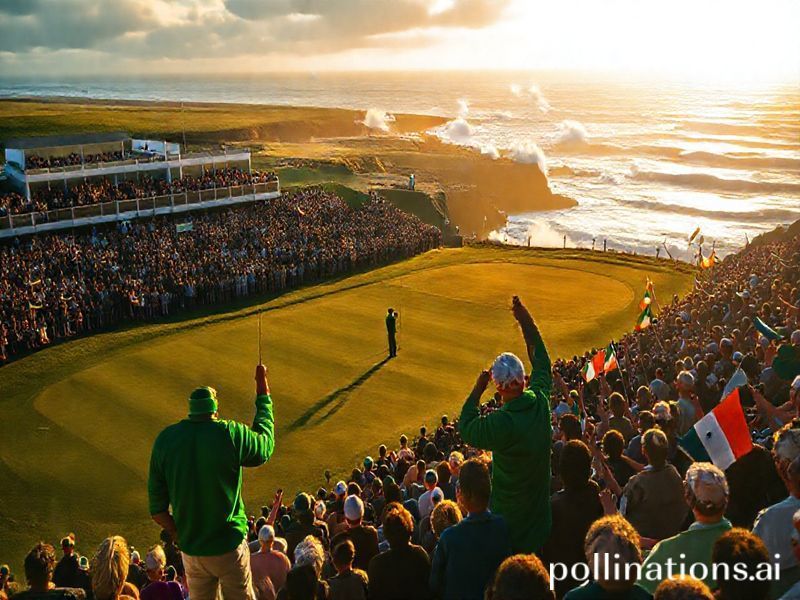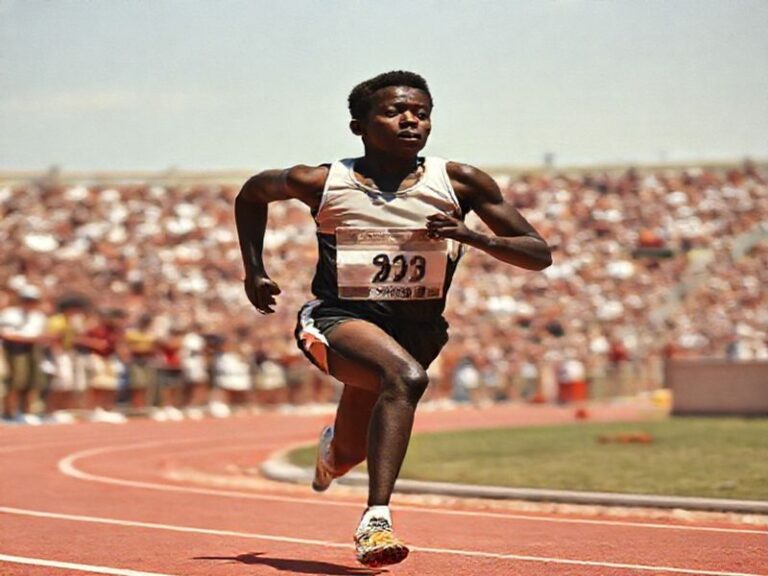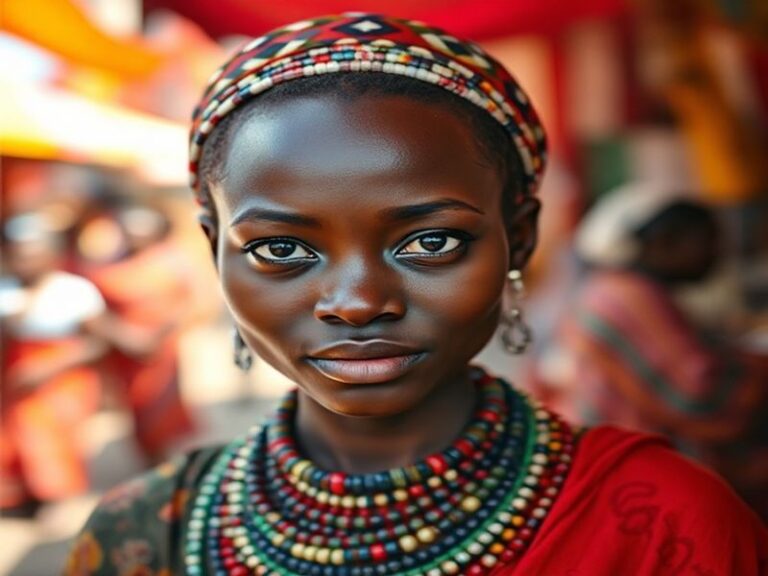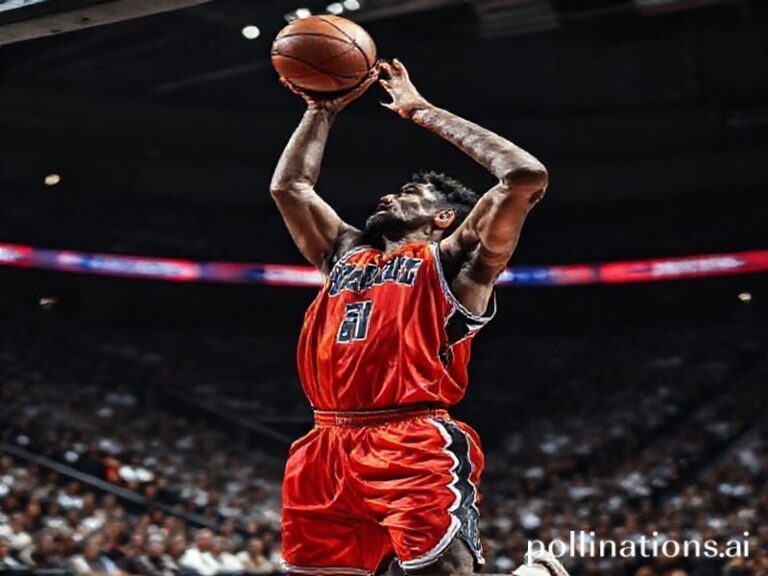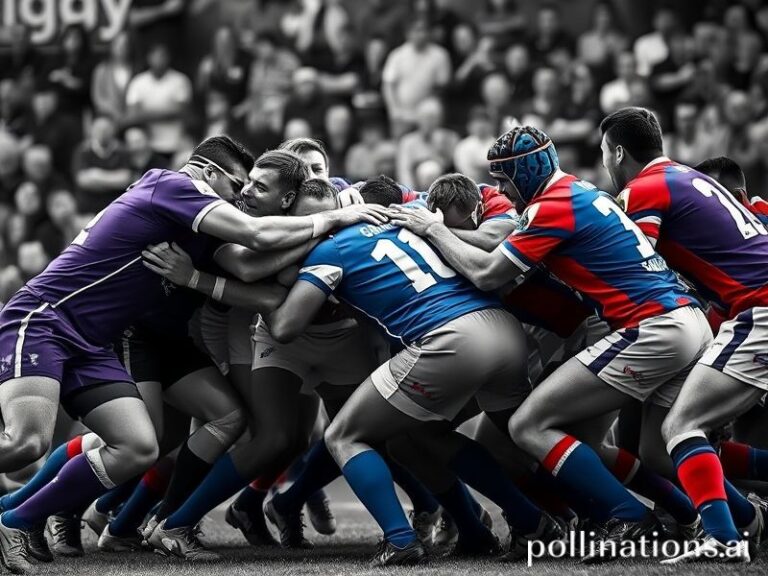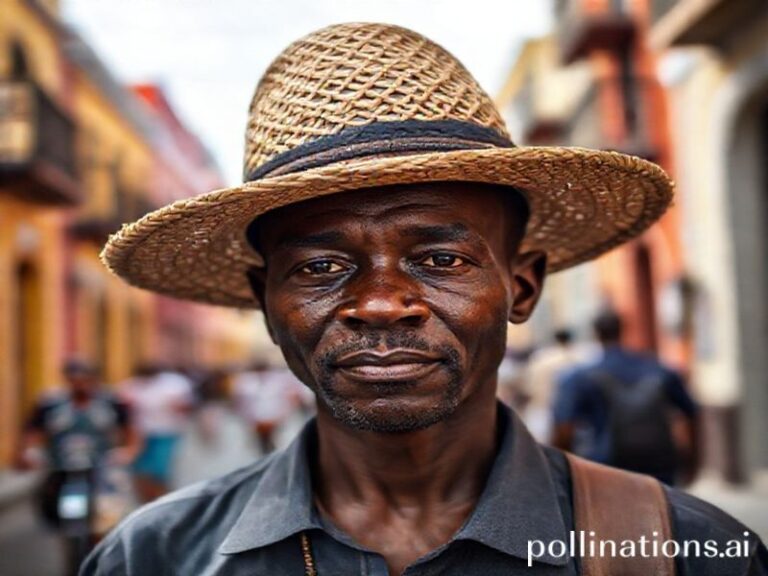irish open
PORTLAOISE, Ireland – While the rest of the planet argues over whose apocalypse is scheduled first—climate, debt, or the next smartphone update—three hundred men in pastel slacks have retreated to a sodden island to ritualistically chase a ball and pretend the 21st century isn’t happening. Welcome to the Irish Open, the European Tour’s annual reminder that even in an age of crypto-coups and AI-generated popes, the most reliable global constant remains a Scotsman in a sweater complaining about the rough.
From a strictly geopolitical standpoint, the tournament is a masterclass in soft-power laundering. The European Tour—now rebranded as the DP World Tour, because nothing says timeless tradition like a Dubai logistics firm—lands its circus in County Laois this year, a place whose chief export is peat and whose last brush with international headlines involved a cow blocking a motorway. Yet for one week, the rolling hills become a miniature Davos with divots. Corporate tents bloom like mushrooms after rain, each emblazoned with logos of companies whose environmental pledges expire faster than the free Guinness.
The field reads like a UN roll-call for the moderately famous. Jon Rahm, who could be carving up Augusta but prefers the intellectual challenge of horizontal rain, headlines alongside local boy Shane Lowry, still dining out on the 2019 Open and the subsequent parade where half of County Offaly pretended they always knew what a “links course” was. Then there’s Tommy Fleetwood, whose hair alone deserves its own television rights deal, and Viktor Hovland, the cheerful Norwegian who smiles like he’s just discovered oil in the fjords and hasn’t told anyone yet.
Global broadcasters dispatch crews who file breathless dispatches about the “authentic links experience,” which is code for watching grown men search for golf balls in gorse bushes while wearing the expression of men reconsidering their life choices. The cameras studiously zoom past the €15 pints and the hospitality suites where hedge-fund managers compare handicap adjustments to tax loopholes. Somewhere, a junior producer is Googling “bog snorkelling” to spice up the B-roll.
The wider world, of course, has not been informed of this temporary ceasefire. In Sudan, the generals continue their season-long playoff for control of a country most viewers couldn’t find on a Risk board. In Washington, the debt ceiling is being raised with the solemnity of a caddie selecting a 7-iron. Meanwhile, the Irish Open offers a seductive illusion: that problems can be solved by simply walking 18 holes and shaking hands over a pint of Smithwick’s. It’s the same delusion that fuels Davos, only with worse Wi-Fi and better accents.
Sustainability officers—an occupation invented sometime between the invention of the lob wedge and the collapse of the Larsen B ice shelf—hand out leaflets promising carbon neutrality. They neglect to mention the fleets of private jets parked at Shannon, each one burning more fuel per passenger than a small Balkan country. Still, the sheep grazing the rough are technically organic, so that’s one checkbox ticked for ESG compliance.
By Sunday evening, the champion will hoist the Waterford Crystal trophy, pose for photos with a politician whose name he’ll forget by the first tee box next year, and fly off to the next stop on the endless carousel of fairways and false bonhomie. The temporary grandstands will be dismantled, the corporate logos peeled away like Band-Aids, and County Laois will return to its primary occupation of exporting rainclouds.
And somewhere in a bar in Dubai, a marketing executive will sip a €200 glass of Yamazaki and toast the triumph of branding over substance—proof that even in a world on fire, you can still sell the smell of freshly cut grass to people who’ve never mown a lawn. The Irish Open, ladies and gentlemen: the last acceptable form of colonialism, sponsored by a shipping company and powered entirely by denial.

